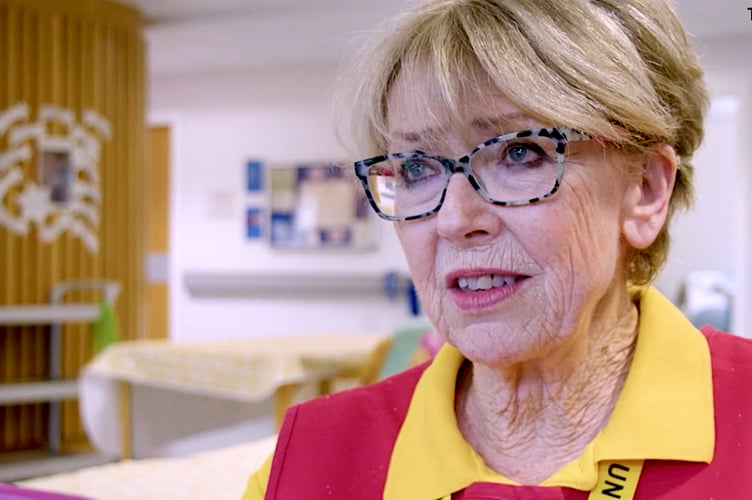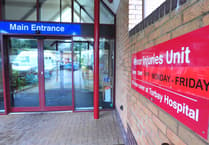ONCE a week Eileen Engleman can be found serving hot meals, chatting and playing bingo with patients at Newton Abbot Community Hospital.
As one of eight mealtime companions, Eileen provides a lifeline to people who may need help eating and drinking, or just want someone to talk to while they’re being cared for in hospital.
Mealtime companions are volunteers who help out at breakfast, lunch and dinner time, offering practical help to make sure people are able to eat their meals. They also provide social support by talking and listening to people to help their mental health and wellbeing, which plays a huge benefit in people’s recovery.
Eileen, who used to be a nurse, has been a mealtime companion for several years.
She said: ‘It’s a wonderful thing to do and a real highlight of my week.
‘I love meeting new people and knowing I am playing a part in someone’s care and recovery.
‘Sometimes it’s just telling people what’s on their plate, prompting them and putting food on their fork to help them to eat, and for someone to know I am here if they need me.
‘I get a lot of satisfaction from being a mealtime companion, and I feel I make a big difference to someone’s day, particularly when talking to them prompts memories.
‘We talk about lots of things and I always end my shift with a huge sense of satisfaction, which means the world to me.’

Irene McClelland, Torbay and South Devon NHS Foundation Trust’s mealtime enhancement lead, said companions like Eileen play an important role in hospital patients’ recovery.
She said: ‘Our mealtime companions are our unsung heroes, and by spending time with our patients gives our nurses and healthcare assistants time to provide other care to people who need it.
‘They help improve our patients’ nutrition by actively encouraging them to eat in a calm but sociable atmosphere and having someone to sit and chat to makes eating a much more pleasurable, social experience, particularly those who may be reluctant to eat or take a long time to finish a meal.
‘Our volunteers play a major part in helping to make our hospitals a more friendly and comfortable environment, but we do need more mealtime companions to help us to support our patients at breakfast, lunch and dinner time.
‘You don’t need to have any experience, we will provide full training, and you will be supported at all times by our ward staff. You can give as little or as much time as you are able to.’
Volunteering is a great way to make a big difference and meet new friends, gain a new experience, enhance your CV or college and university applications, and to support our NHS and your community.
All the volunteers are trained and supported in their roles.
If you are 16 or older, and want to help enhance the experience and care of our patients, please contact our volunteering team by calling 01803 656272 or https://tsdft.uk/volunteer



